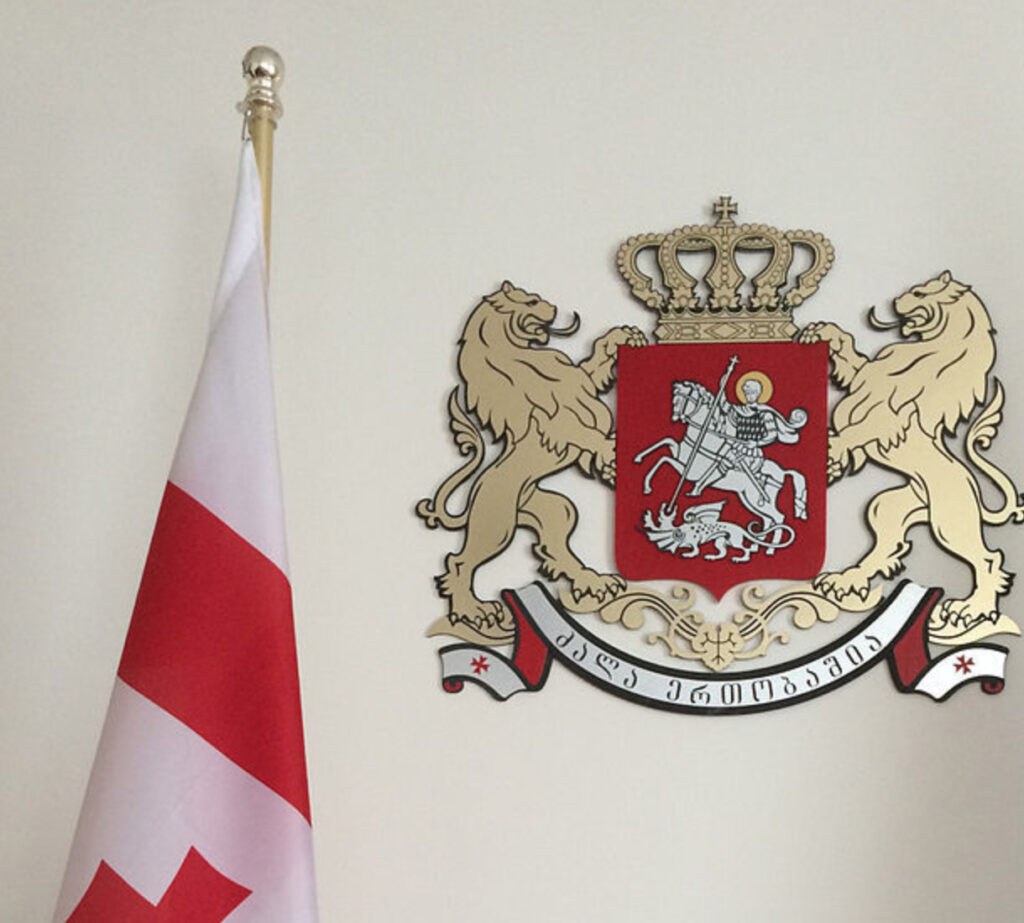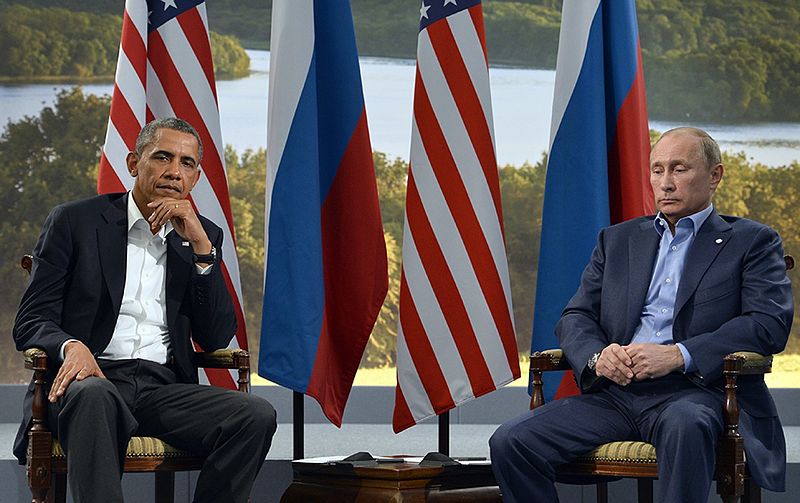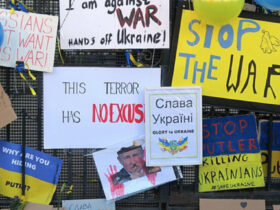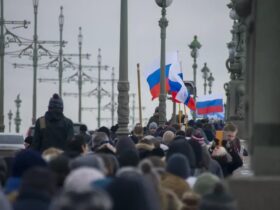LOS ANGELES — Since the 2003 Rose Revolution, Georgia has assumed a role on the global stage as the West’s foothold in the South Caucasus. Former President Mikheil Saakashvili has made significant strides forward in transforming the political landscape of Georgia to meet Western standards of democracy and governance. Fueled by the desire to establish a partnership with a key post-Soviet republic whose anti-Russian agenda aligns with their own, the United States and Europe have responded positively to Georgian efforts to break out of the Kremlin’s tight sphere of influence.
Despite significant progress since 2003, a glaring stain remains on Georgia’s human rights record — one that the government is seemingly unwilling to address. That flashpoint is the rights of ethnic minorities.
Ethnic minorities make up approximately 13% of Georgia’s population today. Although a small republic, Georgia hosts a myriad of diverse ethnic groups, two autonomous republics (Abkhazia and Adjara) and a de-facto independent region (South Ossetia). According to the 2014 census, the two largest demographics are Azerbaijanis (6.2%) and Armenians (4.5%), while ethnic Russians, Abkhazians, Ossetians and other groups comprise the remaining 2.8%.
Although Georgia has seen several changes in leadership and a complete democratic overhaul of state institutions in the decades following the collapse of the Soviet Union, the government’s stance on ethnic minorities has remained constant and uncompromising, embracing xenophobic rhetoric and policies which subject Georgia’s minorities to continued discriminiation, violence and exclusion. Some attribute Georgia’s continued oppression of ethnic minorities to its formerly privileged position under the USSR, when it reaped the benefits of having ethnic Georgians like Stalin and Beria in the highest ranks of Soviet leadership. Others argue that the United States and EU are complicit in facilitating these abuses.
When Georgia first initiated efforts to join the Council of Europe as a member state, it became a signatory of the Framework Convention for the Protection of National Minorities, which is “the first legally binding multilateral instrument concerned with the protection of national minorities.” To date, Georgia has violated nearly every article listed under Section II of the convention. Due to continued Western interest in the region, however, European countries have largely turned a blind eye to Georgia’s violations, allowing the oppression of ethnic minorities to continue.
Moreover, Article 38 of the Georgian Constitution holds that citizens shall be afforded the same rights regardless of ethnicity, and in accordance with international law “shall have the right to develop freely, without discrimination and interference, their culture.”
Ethnic minority mistreatment in Georgia, therefore, constitutes a direct violation of both domestic and international law, revealing a consistent pattern of illegal state-sanctioned abuse and systematic suppression which continuously stunt its Western ambitions.
Armenian Exclusion and Cultural Genocide
The second-largest ethnic minority in Georgia, Armenians have played a significant role in its sociopolitical environment from antiquity to modern day. Despite sharing a Christian heritage and a border to the South, the relationship between Armenia and Georgia remains complex, tainted by geopolitical realities, conflicting alliances and cultural tensions.
Following the collapse of the Soviet Union, the Georgian government’s treatment of ethnic Armenians significantly deteriorated, fueled by xenophobic sentiment and widespread suspicion amidst pro-Russian separatist movements in Abkhazia and South Ossetia.
Free to govern as they wished, independent Georgia began targeting ethnic minority rights in the Armenian-majority Samtskhe-Javakheti and other minority regions through “Georgification,” adopting nationalist policies of exclusion from educational and employment opportunities.
Georgian universities in minority-populated areas began teaching only in the Georgian language; and in 2005, a national entrance examination was established which tested Georgian language and literature for acceptance to universities, among other subjects. Moreover, private institutions that teach in minority languages like Armenian are not accredited in Georgia. Because most ethnic minorities living in minority regions, like the Armenians of Javakheti, speak their minority language, they are forced to seek higher education in their kin-states instead, having been deprived of educational opportunities in Georgia due to the imposed language barrier.
For example, after Armenians from Nagorno-Karabakh fled to Kakheti during the first Nagorno-Karabakh War in the 1990s, several Armenian villages were completely Georgified. Georgians would not employ them due to their ethnicity, they could not gain admission to universities and receiving an education in Armenian proved to be an obstacle. Georgia’s discrimination against ethnic minorities extended to localities at the grade school-level, too. The number of schools in minority-populated regions is relatively low, and although most schools in Javakheti are taught in Armenian, the teaching of Georgian language and literature has been mandated and enforced in recent years.
To the frustration of the Armenian community, for example, Armenian literature is excluded from school curricula, and Georgian-language teachers in Armenian schools receive a higher salary. Exclusion from educational and employment opportunities guarantees that Armenians in Georgia have no future unless they assimilate.
Furthermore, in Tbilisi, the ongoing destruction of Armenian churches and burial grounds in attempts to erase evidence of Armenian presence remains a significant human rights concern. Using the Georgian Orthodox Church as an extended arm of the state, the Georgian government has carried out a program of Georgifying or destroying Armenian cultural sites in attempts to rewrite history.
The Church declares Armenian churches, often marked by khachkars and other features unique to Armenian Apostolic churches, are Georgian, thereby empowering authorities to seize and destroy evidence of its origins. The government and Orthodox Church then either reclaim the church as Georgian, effectively rewriting history, or destroy it to build a Georgian one over it, sometimes over Armenian burial grounds. Modern technology and photographic records of the targeted Armenian churches now provide evidence of these violations.
It appears that Georgian authorities often erase, pressure and rob the culture of ethnic minorities within their territory.
The Human Cost of Autonomy: Abkhazia and South Ossetia
Georgian violations of ethnic minority rights in Abkhazia and South Ossetia escalated severely after the collapse of the USSR.
Many of the same obstacles facing the Armenian community in Samtskhe-Javakheti, namely exclusion from equal opportunities and forced assimilation, were true for ethnic Abkhazians and Ossetians living in the autonomous republics, escalating tensions in these regions while Georgia was still part of the Soviet Union. However, the events leading up to the 2008 Russo-Georgian War, its course and its aftermath have worsened human rights violations against ethnic minorities, which have now come to be characterized by violence, ethnic cleansing and hostility.
Briefly delving into the history of the conflict, the “Abkhaz and South Ossetians wanted to preserve, and remain within, the Soviet Union considering their survival as ethno-cultural communities distinct from the Georgian majority to be in acute danger in an independent Georgian state.” When Georgia declared its independence in 1991, fighting broke out first in South Ossetia and then in Abkhazia, prompting a war with pro-Russian separatists on one side and Georgian militia and government forces on the other.
According to the timeline of the UN Refugee Agency, tensions first rose during the perestroika period under Gorbachev. Georgian authorities would dictate that anyone living in Georgia had to become Georgian, subjecting ethnic minorities in the autonomous regions to oppression. “As Georgians increasingly organize[d]to assert their nationalism under Zviad Gamsakhurida, the Abkhaz in turn mobilize[d]to protect their identity and status.”
Some scholars argue that the Georgians created such an oppressive environment where resistance by the Abkhazians and South Ossetians was justified. They were faced with an existential threat: ethnic minorities could assimilate and become Georgian, or leave.
Faced with growing pressures by Georgian authorities, the separatist movement unfolding in Abkhazia and South Ossetia prompted other ethnic minorities to join the resistance. In Abkhazia, for example, the Armenian population outnumbers the Abkhaz and there is a significant Russian population. In one instance, the 80-year-old mother of an Armenian community leader in Abkhazia was assaulted and burned with a lamp by Georgian militia. The Georgian forces committed inhumane, gross violations of human rights, turning the Armenians against them.
During the period of fighting, human rights violations by Georgian and Abkhaz forces were documented by Human Rights Watch, corroborating the claim that the majority of abuses were committed by the Georgian side. Once Abkhaz forces gained control of Abkhazia and fighting ultimately died down, however, hundreds of thousands of displaced persons were denied a chance to return, the majority of whom were Mingrelian Georgians.
Fast forwarding to the 2008 flare-up of the conflict, after successfully reintegrating the autonomous republic of Adjara into Georgia, Saakashvili set his sights on Abkhazia and South Ossetia next. Although a tactful combination of diplomacy and threat of force seemed to work in Adjara’s case, where the population was ethnically Georgian but religiously Muslim, the same strategy was difficult to implement in Abkhazia and South Ossetia, where it was a matter of ethnic conflict.
Unlike Armenian and Azerbaijani ethnic minorities, who have kin-states bordering Georgia, Abkhazia and South Ossetia had no such option. Faced with the threat of Saakashvili, who had the full backing of the United States and Europe, the separatists appealed to Russia for aid. Russia deployed troops in Abkhazia and South Ossetia to fight on behalf of the rebels, acting opportunistically to eliminate Georgia as a viable candidate for NATO.
Moreover, reports emerged that the Georgian side had been the one to instigate the conflict. Sir Anthony Brenton writes, “As confirmed by an exhaustive EU investigation after the event, it was the Georgians who fired first. They attacked Russian peacekeepers in South Ossetia, killing some.” According to Brenton, who was the British ambassador to Moscow at the time, “It was then politically impossible for the Russians not to react as they did.” Saakashvili did not deny these allegations.
It appears that Georgian President Saakashvili, enjoying the full backing of the West and a recent success in Adjara, was determined to pick a fight with Russia. Days later, when Russian tanks were rolling towards Tbilisi with no signs of slowing down, Saakashvili would come to regret that decision.
Since the war in 2008, which saw Russian military intervention on behalf of Abkhazian and Ossetian separatists, the situation has remained unresolved by international standards. Though Abkhazia and South Ossetia have gained de facto independence and recognition from a handful of countries, including Russia, the majority of the international community sees the regions as Russian-occupied.
The case of Abkhazia and South Ossetia is a powerful example of how continued discimination, oppression and abuse of ethnic minorities can escalate quickly into an ethnic conflict with geopolitical implications. For Georgia, the unwillingness to uphold protections for minority rights ultimately cost them their territorial integrity, thousands of lives and their ambitious NATO aspirations.
The Case of the Exiled Meskhetian Turks
When discussing the rights of ethnic minorities in Georgia, one of the most prominent cases is that of a group which no longer presides in Georgia: the Meskhetian Turks. The history of the Meskhetian Turks paints a particularly painful picture of a people who have been in perpetual exile for almost a century.
In 1944, when Stalin and Beria labeled the Meskhetian Turks an “untrustworthy population,” Soviet troops forcibly deported them to the Central Asian Soviet republics, effectively ethnically cleansing the Georgian region of Meskheti, today Samtskhe-Javakheti, of Muslims. Since then, the Meskhetian Turks have “survived a mass deportation from Georgia, interethnic programs in Uzbekistan, and ethnic cleansing in southern Russia.” Though Stalin’s policies were driven strictly by nationalism and paranoia, many speculate that his distrust of Meskhetian Turks stemmed from the close proximity of Samtskhe-Javakheti to Turkey, where Meskhetian Turks could pose a potential threat, in Stalin’s eyes, of subversion or collusion with Turkey.
In the late 1980s, under Gorbachev’s perestroika, groups that had been displaced during the Soviet Union, including Meskhetian Turks and Crimean Tatars, expressed a desire to return to their homelands. The Georgian side, however, employed all possible methods to prevent the return of the Meskhetian Turks, because those regions had been largely resettled by Georgians.
One of the reasons Georgians most often cite for their refusal to accept the exiled Meskhetian Turk population is the unfounded claim that Armenians are opposed to the return of ethnic Turks in the region. Since the 1980s, Georgia has pushed the narrative that in addition to not having the resources to accommodate such a repatriation, the return of the Meskhetian Turks would instigate ethnic conflict between Armenians and Turks. Justified on these grounds, Meskhetian Turks “who returned spontaneously to Meskheti were sent back” by Georgia, and “[e]ven those who tried to visit their native lands as tourists were denied the right to do so.”
However, the regions of Samtskhe-Javakheti which the Meskhetian Turks had formerly inhabited are populated today by ethnic Georgians. Very few Meskhetian Turks would return to regions where the majority of the Armenian population is concentrated, posing no real threat of ethnic tension. Although Georgian officials continued pushing this narrative, the official stance of the Armenian leadership in Javakheti confirmed that they had no objections to the return of the Meskhetian Turks.
As a result of Georgia’s uncompromising stance on the issue, which has remained constant despite multiple changes of administration in Tbilisi, the indefinite exile of the Meskhetian Turks remains a stain on Georgia’s human rights record and a testament to its oppressive treatment of ethnic minorities.
The Achilles’ Heel of Georgia
Georgia has long been revered as the bastion of democracy in the South Caucasus. With powerful ambitions to join NATO, Westernize their institutions and establish strong ties with the United States and European Union, Georgia has been the West’s partner of choice in the post-Soviet region time and time again.
However, Georgia has a weakness.
Unlike most modern Western democracies, Georgia is unwilling to compromise when it comes to the question of ethnic minority rights. In recent decades, Georgian authorities have not taken any steps to address the discriminatory, xenophobic and oppressive policies against ethnic minorities. The commitments they made to the Council of Europe remain unfulfilled, facilitated by Western complicity in turning a blind eye to Georgia’s abuses.
Moreover, the state of ethnic minority rights in Georgia seems to only be deteriorating, as tensions in Abkhazia and South Ossetia remain unresolved; ethnic minorities continue to be subjected to forced assimilation, erasure of history and exclusion; and displaced populations remain in exile.
Recent history has come to show that Georgia’s discriminatory policies towards ethnic minorities remains an obstacle in its path towards Westernization and progress. Armed conflict with Russia, a war sparked by Georgia’s inability to respect minority rights in Abkhazia and South Ossetia, effectively prevented Georgia from realizing its hopes to join NATO — and Saakashvili’s position as instigator of the conflict put Western allies in the difficult position of having to re-evaluate the value of partnership with Georgia.
Georgia’s uncompromising stance on the return of Meskhetian Turks in exile and its discriminatory policies towards Armenians and Azerbaijanis highlights nationalistic and xenophobic attitudes which, at least on paper, are frowned upon by the Western world. The systematic erasure of Armenian culture and history also raises serious human rights concerns regarding cultural genocide, a particularly sensitive issue when it comes to a group previously subjected to genocide.
The solution is clear. If Georgia is holding onto hopes for integration into Western frameworks in the future, it must first change its position on ethnic minority rights and take the necessary steps to afford all its citizens, regardless of ethnicity, equal protection under the law as guaranteed under its Constitution.
Because if Georgia does not learn from its mistakes, the next time ethnic tensions explode in the oppressive environment it has created, it may cost Georgia much more than its territorial integrity and a NATO alliance.







